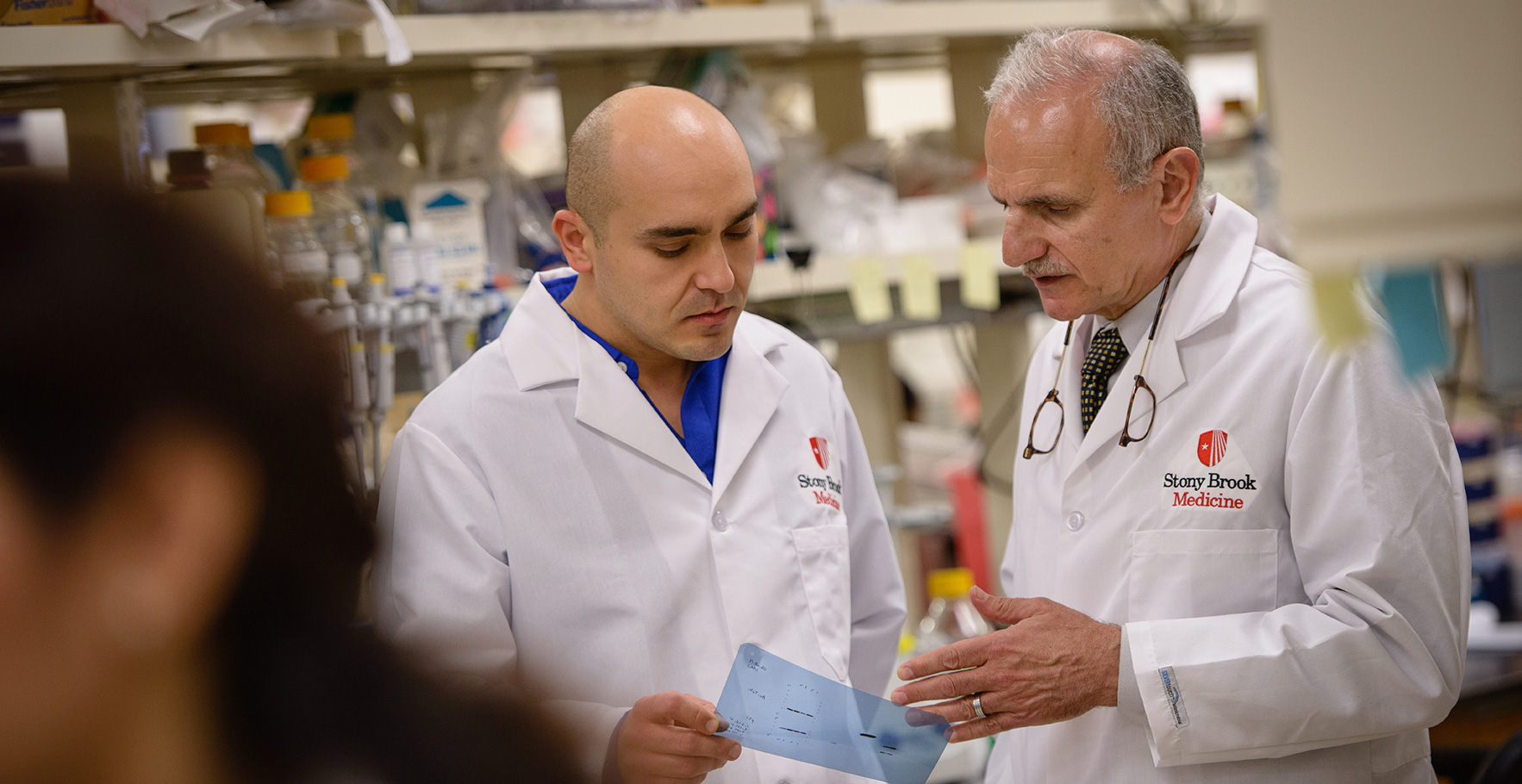Stony Brook Cancer Center is the only facility of its kind on Long Island. Here, cancer researchers and clinical investigators are joining forces in the Medical and Research Translation (MART) building, collaborating to build the most comprehensive, integrated, and unified team with one singular purpose: to investigate, discover, and drive innovation in cancer treatment and prevention.
With four floors entirely dedicated to basic science research, the new facility provides an ideal environment for closer interactions and collaborations among our scientists and clinicians, focusing on important cancer problems. Our cancer research teams work closely with clinicians to marry insights from pre-clinical discoveries to accelerate approaches to clinical trials in adults and children. This ideal environment brings both scientific and clinical discovery together to unravel the mysteries of cancer, reimagine cancer diagnostics and treatments of tomorrow, and ultimately eradicate cancer.
Research in the MART is comprised of key scientific research programs:
- Clinical Trials Center
- Oncogenic Drivers and Mechanisms of Carcinogenesis Program
- Imaging, Biomarker Discovery, and Engineering Sciences Program
- Lipid Signaling and Metabolism in Cancer Program
These programs build on exceptional expertise at Stony Brook Cancer Center and Stony Brook University, and they focus on unique and cutting-edge approaches to unravel how cancer cells develop and how they work and evolve. These approaches are defining new vulnerabilities for treatment and new approaches for early detection and prevention.
The Kavita and Lalit Bahl Molecular Imaging Laboratory With a cyclotron located in the lab, this leading-edge technology will revolutionize the ways cancer is treated by improving our understanding of cancer diagnostics and treatment effectiveness, enabling greater precision in targeting and treating tumors.
Center for Biomedical Informatics By extracting meaning from large amounts of research information, our program is broadening discoveries in cancer biology and enabling comprehensive analysis and sequencing of genomic and proteomic data. The program will make pivotal contributions to integrative biomedical research by translating insights from integrative research to targeted patient therapies, and by developing data analytic methods to optimize healthcare.

